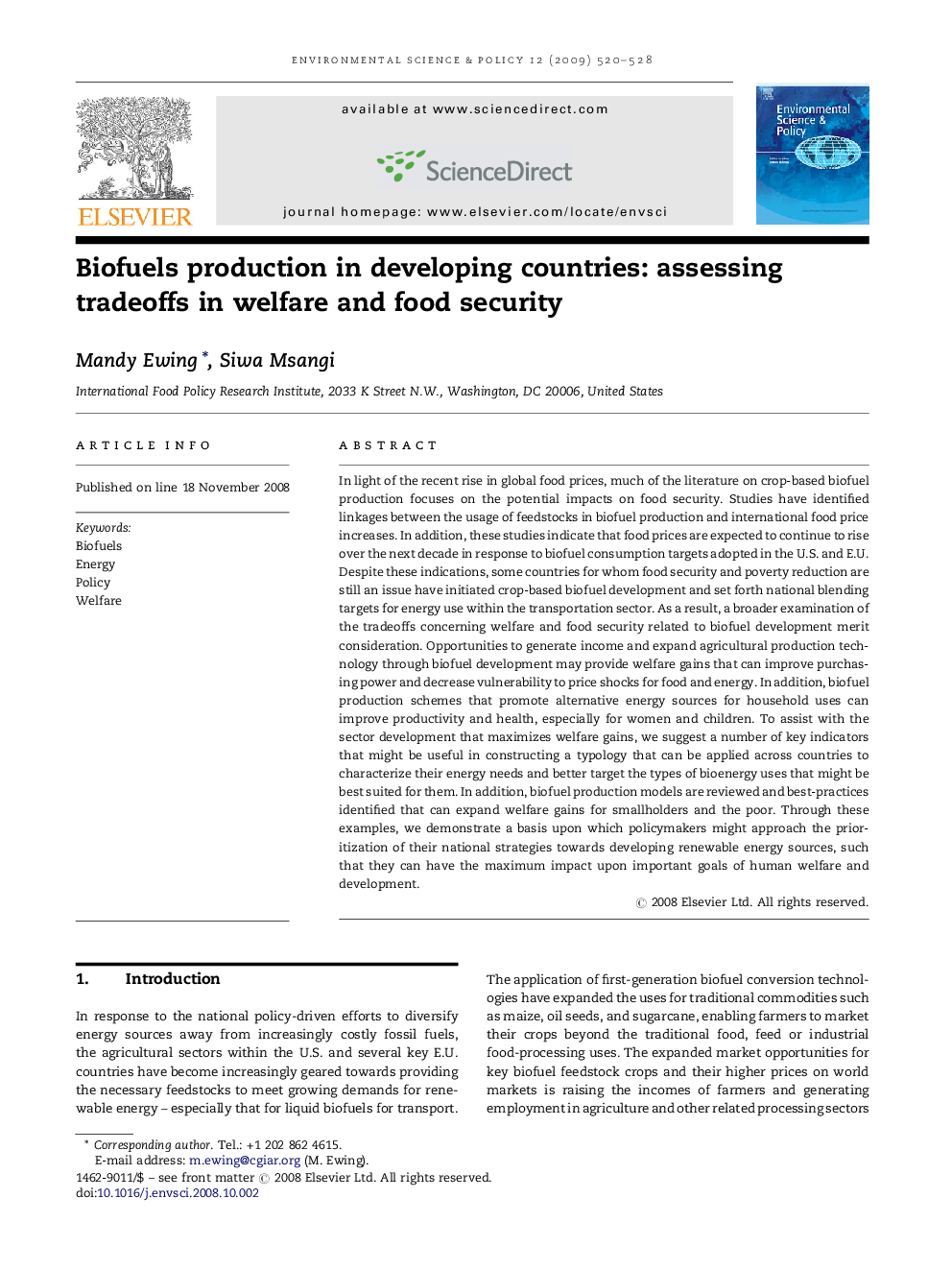| کد مقاله | کد نشریه | سال انتشار | مقاله انگلیسی | نسخه تمام متن |
|---|---|---|---|---|
| 1053977 | 946738 | 2009 | 9 صفحه PDF | دانلود رایگان |

In light of the recent rise in global food prices, much of the literature on crop-based biofuel production focuses on the potential impacts on food security. Studies have identified linkages between the usage of feedstocks in biofuel production and international food price increases. In addition, these studies indicate that food prices are expected to continue to rise over the next decade in response to biofuel consumption targets adopted in the U.S. and E.U. Despite these indications, some countries for whom food security and poverty reduction are still an issue have initiated crop-based biofuel development and set forth national blending targets for energy use within the transportation sector. As a result, a broader examination of the tradeoffs concerning welfare and food security related to biofuel development merit consideration. Opportunities to generate income and expand agricultural production technology through biofuel development may provide welfare gains that can improve purchasing power and decrease vulnerability to price shocks for food and energy. In addition, biofuel production schemes that promote alternative energy sources for household uses can improve productivity and health, especially for women and children. To assist with the sector development that maximizes welfare gains, we suggest a number of key indicators that might be useful in constructing a typology that can be applied across countries to characterize their energy needs and better target the types of bioenergy uses that might be best suited for them. In addition, biofuel production models are reviewed and best-practices identified that can expand welfare gains for smallholders and the poor. Through these examples, we demonstrate a basis upon which policymakers might approach the prioritization of their national strategies towards developing renewable energy sources, such that they can have the maximum impact upon important goals of human welfare and development.
Journal: Environmental Science & Policy - Volume 12, Issue 4, June 2009, Pages 520–528